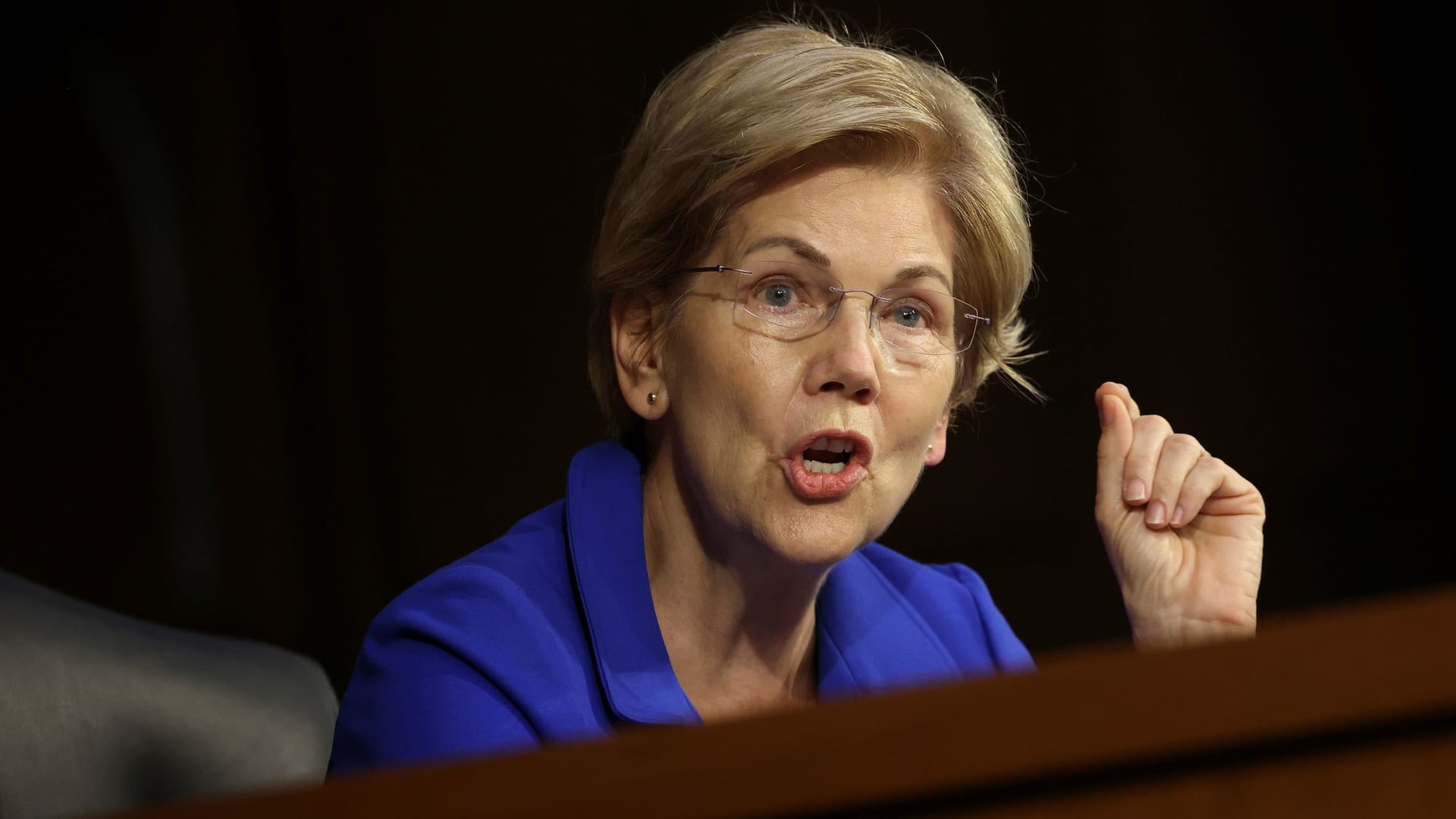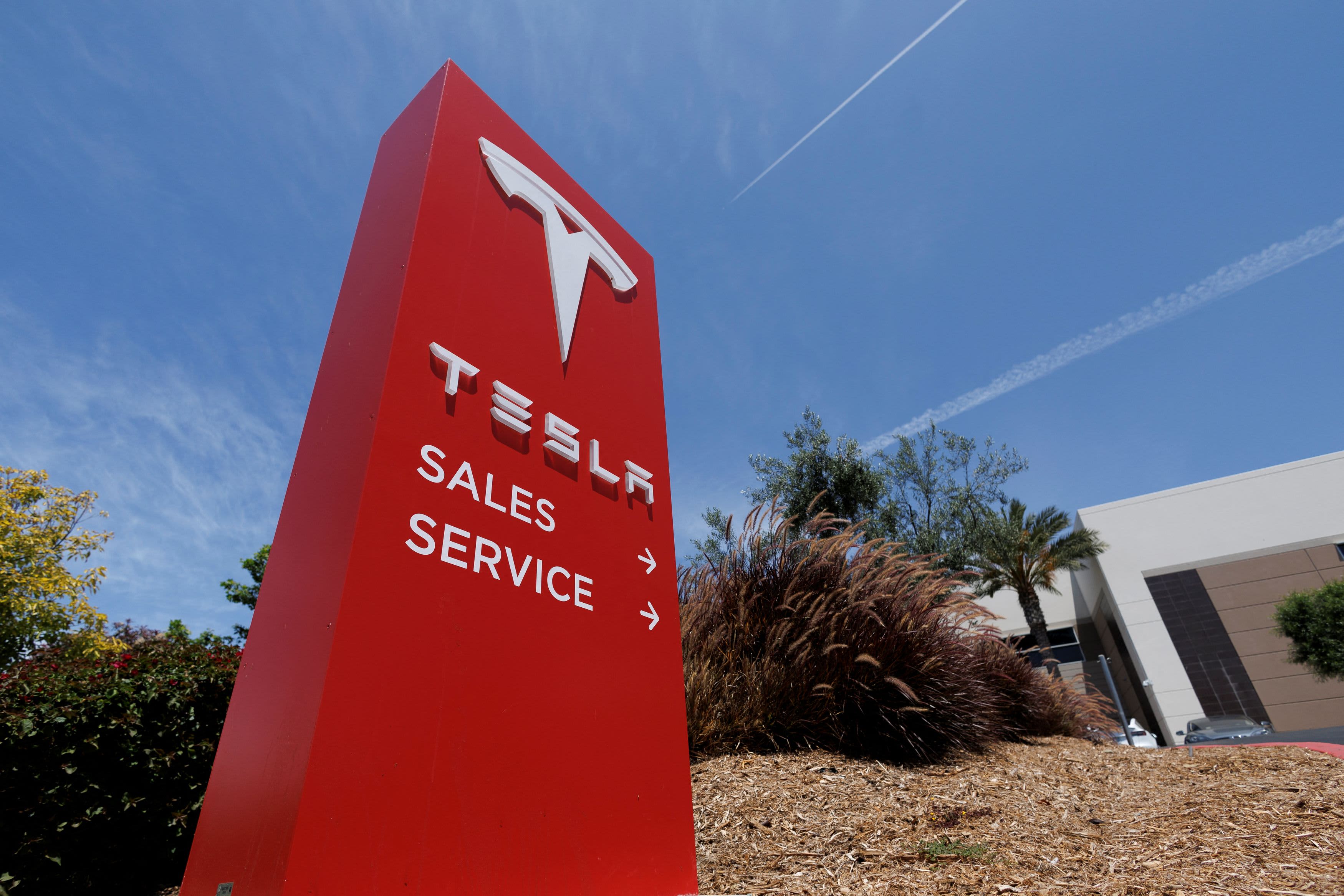Sen. Elizabeth Warren, D-Mass., wrote to the chair of Tesla’s board, Robyn Denholm, expressing concern that CEO Elon Musk has possibly violated his legal duties to Tesla since he bought Twitter for $44 billion and that the board has failed in its duties to protect the company by not reining him in.
“[E]very Board of Directors of a company with multiple shareholders – especially publicly traded companies – is responsible for ensuring that a controlling shareholder (especially one who is also a Chief Executive Officer, or CEO) does not treat the company as a private plaything,” Warren wrote in a letter on Sunday.
related investing news
The lawmaker, who has sparred with Musk in the past over the idea of a wealth tax, asked the board to answer specific questions about the alleged misappropriation of Tesla resources and conflicts of interest resulting from Musk’s purchase of Twitter.
Warren charged that Musk’s new ownership of the social media platform has “raised questions about possible violations of securities or other laws, including whether Mr. Musk is funneling Tesla resources into Twitter, a potentially ‘improper diversion of resources that might impact Tesla’s sales and earnings’ and could result in ‘delays in programs at Tesla.'”
Warren cited CNBC reporting that Musk had pulled Tesla employees to help in his takeover of the platform, warning those arrangements may run afoul of state and federal labor laws.
“This use of Tesla employees raises obvious questions about whether Mr. Musk is appropriating resources from a publicly traded firm, Tesla, to benefit his own private company, Twitter,” Warren wrote, adding that it could violate Musk’s “legal duty of loyalty to Tesla.” She also suggested the arrangements could violate legal requirements to make public any employment agreements with executive officers, which Warren said Tesla has not done.
Musk’s ownership of Twitter creates “unavoidable conflicts of interest,” according to Warren.
Because Twitter relies on advertising revenue from other automobile companies that compete with Tesla, she wrote, Musk may be incentivized as the owner of Twitter to maximize revenue in its advertising deals with those Tesla rivals. But Musk could also choose to go the opposite route, Warren said, running Twitter to benefit Tesla by tweaking the algorithms to promote praise of Tesla products, giving the company free advertising or making it more difficult for competitors to reach potential customers on the platform.
Warren added that the debt Musk took on to buy Twitter could also create conflicts, such as incentivizing him to have Tesla overpay for Twitter advertising to infuse it with cash.
Hate speech on Twitter could also damage Tesla’s brand, Warren warned.
She accused Tesla’s board of failing to take action to protect the company as its stock fell sharply after Musk’s purchase of Twitter while other automakers have outperformed Tesla. Though she acknowledged not all the losses could be attributed to the Twitter purchase, “there appears to be a direct link,” she said.
Warren asked Denholm to respond by Jan. 3 about the oversight the board will impose on Musk to ensure he meets his fiduciary duties at Tesla, how it’s protecting from conflicts of interest, what sort of formal agreements are in place between the two companies and more.
Musk and his lawyer did not immediately respond to a request for comment.
WATCH: Twitter is now Elon Musk’s company — Here’s how experts responded to the news


